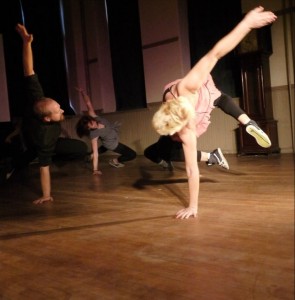by Dr. Joseph Barber
1) Chickens have great vision
With their ability to view the world with binocular and monocular vision (each eye processing a different image with no visual overlap between the eyes), chickens have a great perspective of the environment around them. Each eye (and related hemisphere of the brain) has slightly different priorities in terms of what type of visual information is processed. The right eye/left hemisphere are better at discriminating visual stimuli into categories by identifying common features of objects (e.g., is it food or not? Is it a familiar chicken or not?). The left eye/right hemisphere play an important role in any learning involving spatial information, such as where something is in its environment, as well as for spotting predators.
You can learn from this visual division of labour when it comes to job searching. You should always be keeping one eye out for specific opportunities you want to pursue, such as a very specific position in a very specific type of organization. Perhaps you always wanted to be a professor at a teaching-focused institution in California. However, it is never a bad idea to keep your other eye scanning the horizon for other opportunities, locations, and career paths. Are there different organizations that might allow you to use the same skills sets you have to offer in slightly different ways? Now is a good time to think about your Plan B. Chat with an advisor at Career Services for some ideas.
2) Chickens learn best from the best
Chickens are a highly social species, and there are lots of opportunities for social learning to occur, where one individual can learn something important from other individuals within a social group. When hens were allowed to watch a demonstrating bird peck at a certain coloured button to gain access to food, the observers tended to peck the same colour button when they were given the opportunity to apply what they had learnt – even in the absence of the demonstrating bird. However, most interestingly, hens learn best when they watch dominant bird, compared to subordinate or unfamiliar birds, and they don’t really learn much at all from watching cockerels. Now, it is always a good idea for a more subordinate bird to keep an eye on the most dominant bird, because this is the one that is most likely to peck other members of the group. By watching the dominant bird closely, observers were also able to learn something important about gaining access to food.
If you are interested in figuring out what you can do with your knowledge, experiences, and skills, then make sure you look for opportunities to find what people with similar knowledge, experiences, and skills have done before you. Make use of your alumni networks, like PACNet or the alumni LinkedIn group, to explore what people with similar backgrounds have successfully gone on to do. This can give you some insight into how your skills might be valued by different types of organizations. It can also give you a chance to make some contacts and expand your network.
3) Chickens like contrafreeloading
Contrafreeloading is the term used to describe the tendency for animals to work for access to a resource like food, even in the presence of free food. Chickens may peck at a button in an experimental chamber to access food. Perhaps 10, 20, or 30 pecks results in a small amount of food being delivered. Chickens will continue to work for food in this way even if there is a dish of the same food sitting right next to them. The act of working for food provides the chicken with some element of control over its environment, and having some control is always a good thing. Chickens seem to value the rewards they receive more when they have put effort in to obtaining those rewards.
Be proactive in your job search. When you attend career-related programs, such as panel discussions featuring alumni from different occupations coming back to talk about their own experiences, be one of the people who actually asks questions. Take the opportunity to follow-up with the speakers at the end of the discussion. Don’t just accept the free information gained by passively sitting through the discussion without asking questions, or by spending too much of your time looking at career resources online. Be active, and connect with real people who might be able to provide you with much more accessible information and additional contacts. You will gain more, and appreciate what you uncover more, when you have been courageous enough to network.
4) Chickens know that hidden objects still exist
Organisms that have an understanding of object permanence know that objects that become hidden by some sort of visual barrier still exist. So, just because they are out of sight does not mean that they have disappeared. Chicks in the first week of their lives have a basic understanding of object permanence. It takes a human infant 8-10 months to develop this ability.
You want to make sure that the people you meet at career fairs, conferences, and other networking opportunities, don’t end up questioning your physical existence once you have left their sight. In other words, the shaking hands and exchanging business cards part of networking is only a small part of the networking process. Once you have made a contact, you need to be able to further develop and build on this connection. Your goal is to develop a more established relationship with the people you meet. This is successful networking. If you meet someone and they never hear from you again for 2-3 years, then you should not be surprised that they have a hard time remembering you when you try to get back in contact. You do still exist, and so help them remember this. This is especially important for the people you hope will write you letters of reference one day soon – keep them updated about your professional progress even during times when you don’t need them to write letters for you.
5) I know a thing or two about chickens
I did my PhD research on the behaviour of chickens. If you choose to be a chicken during your job search, then chances are that I can offer you some insightful advice. I might have a slightly harder time providing feedback if you choose to be a kinkajou, a wombat, a prairie dog, a kiwi, a humpback whale, a hedgehog, a hellbender salamander, a Pacific walrus, a newt, a kookaburra, a giraffe…..
 My favorite barista is a dancer. Today, while preparing another of her oh-so-perfect lattes, she mentioned that her dance company is interviewing people about what their jobs mean to them. They’re at the beginning of this creative endeavor, allowing the process itself to take them to an unknown destination. They do plan to create a dance. Will they interpret their interviewees’ stories through movement? Use interviewees’ words? Voices? Where will the interviewees’ stories lead the dancers? Where will the process itself lead them? Where will their artistry lead us all?
My favorite barista is a dancer. Today, while preparing another of her oh-so-perfect lattes, she mentioned that her dance company is interviewing people about what their jobs mean to them. They’re at the beginning of this creative endeavor, allowing the process itself to take them to an unknown destination. They do plan to create a dance. Will they interpret their interviewees’ stories through movement? Use interviewees’ words? Voices? Where will the interviewees’ stories lead the dancers? Where will the process itself lead them? Where will their artistry lead us all?






